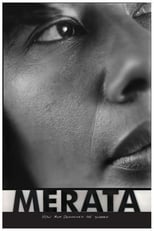

Andrew Okpeaha MacLean
Andrew Okpeaha MacLean is a film director and screenwriter creating works in international filmmaking arenas. His films are set in his homeland, shot on location in Barrow, Alaska, starring Iñupiat people. They are among the first feature films produced in the Iñupiaq language.
Andrew MacLean’s heritage is woven into how the characters make decisions, relate to each other and in how the plots develop. His work often explores paałaqtautaiññiq, a core value among his people which roughly translates as “non-violence” or “avoidance of conflict.” MacLean’s work examines how an individual and a community reacts to violence, identifying unique cultural responses to extreme situations.
The Sundance Institute Native Film Program, a NACF capacity-building awardee, selected his first work, the short film Sikumi to be developed in the Producers Lab. MacLean’s first feature-length film, On the Ice, screened at the Sundance Film Festival and at select theaters throughout the country.
With the support of an NACF Artist Fellowship in Film, MacLean began work on adapting the Iñuit story The Children of the Northern Lights (2013) for film. In the well-known story, a hunter sacrifices his own life to ensure the survival of the spirits of the Aurora Borealis. MacLean set the original legend in outer space, on a moon circling a distant planet. The story becomes an allegory for the choices we must make to ensure the survival of our own fragile world.
(Native Arts & Cultures Foundation)
Andrew MacLean’s heritage is woven into how the characters make decisions, relate to each other and in how the plots develop. His work often explores paałaqtautaiññiq, a core value among his people which roughly translates as “non-violence” or “avoidance of conflict.” MacLean’s work examines how an individual and a community reacts to violence, identifying unique cultural responses to extreme situations.
The Sundance Institute Native Film Program, a NACF capacity-building awardee, selected his first work, the short film Sikumi to be developed in the Producers Lab. MacLean’s first feature-length film, On the Ice, screened at the Sundance Film Festival and at select theaters throughout the country.
With the support of an NACF Artist Fellowship in Film, MacLean began work on adapting the Iñuit story The Children of the Northern Lights (2013) for film. In the well-known story, a hunter sacrifices his own life to ensure the survival of the spirits of the Aurora Borealis. MacLean set the original legend in outer space, on a moon circling a distant planet. The story becomes an allegory for the choices we must make to ensure the survival of our own fragile world.
(Native Arts & Cultures Foundation)
Movies for Andrew Okpeaha MacLean...

Title: Merata: How Mum Decolonised the Screen
Character: Self
Released: January 28, 2019
Type: Movie
A documentary portrait of the pioneering indigenous filmmaker and activist Merata Mita and an intimate tribute from a son about his mother that delves into the life of the first woman from an Indigenous Nation to solely direct a film anywhere in the world. Known as the grandmother of Indigenous cinema, Merata’s independent political documentaries of the 1970s and 80s highlighted injustices for Māori people and often divided the country. Mita was fearless in her life, her activism and her art. Chronicling the director’s journey to decolonize the film and television screens of New Zealand and the world, the film documents her work, her early struggles with her family and her drive for social justice that often proved personally dangerous.
